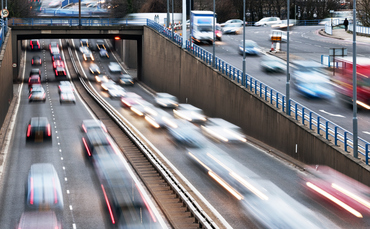Industry Calls for ‘Honest Conversation’ About Replacing Fuel Duty
As the world shifts towards more sustainable energy solutions, the conversation surrounding fuel duty has become increasingly complex and urgent. The traditional model of fuel taxation is under scrutiny as governments and industries grapple with the implications of climate change, technological advancements, and changing consumer behaviors. Recently, industry leaders have emphasized the need for an ‘honest conversation’ about how to effectively replace fuel duty, a topic that holds significant implications for the economy, the environment, and society at large.
The Current Landscape of Fuel Duty
Fuel duty has long been a cornerstone of government revenue, particularly in countries like the UK. It serves not only as a means of taxation but also as a tool to encourage reduced fossil fuel consumption. However, as electric vehicles (EVs) and alternative fuels gain traction, the traditional fuel duty model is becoming less effective. With fewer petrol and diesel vehicles on the road, the revenue generated from fuel taxes is declining, prompting a reevaluation of how governments can maintain funding for essential services, such as road maintenance and public transport.
The Need for a New Approach
Industry stakeholders argue that the current fuel duty system is outdated and unsustainable. As more consumers transition to electric vehicles, the reliance on fuel duty as a primary source of revenue is increasingly untenable. This shift not only threatens government funding but also raises questions about fairness and equity in taxation. Many industry leaders advocate for a new approach that reflects the changing landscape of transportation and energy consumption.
Proposals for Replacement
Several proposals have emerged as potential replacements for fuel duty. One prominent suggestion is the implementation of a road usage charge, which would tax drivers based on the distance traveled rather than the amount of fuel consumed. This model could be more equitable, as it would account for the increasing number of electric vehicles that contribute less to road wear and tear. Additionally, a road usage charge could incentivize reduced driving and promote public transportation use.
Another proposal is the introduction of a carbon tax, which would impose fees based on the carbon emissions produced by vehicles. This approach aligns with global efforts to reduce greenhouse gas emissions and could encourage consumers to opt for cleaner transportation options. However, the challenge lies in determining the appropriate rate and ensuring that it does not disproportionately impact lower-income individuals who may rely on older, less efficient vehicles.
The Importance of Stakeholder Engagement
For any new taxation model to be successful, it is crucial to engage a wide range of stakeholders in the conversation. This includes not only industry leaders and government officials but also consumers, environmental groups, and community organizations. An inclusive dialogue can help identify potential challenges and opportunities, ensuring that the new system is fair, effective, and widely accepted.
Industry leaders have called for transparency and collaboration in this process. They argue that an honest conversation about the future of fuel duty should focus on shared goals, such as reducing carbon emissions, promoting sustainable transportation, and ensuring that government revenues are maintained. By working together, stakeholders can develop a comprehensive strategy that addresses the needs of all parties involved.
The Role of Technology
Advancements in technology will play a critical role in shaping the future of transportation and taxation. Innovations such as smart road systems, vehicle tracking, and automated payment solutions could facilitate the implementation of new taxation models. For instance, GPS technology could enable real-time tracking of vehicle usage, allowing for more accurate road usage charges. Additionally, advancements in data analytics could help governments better understand driving patterns and adjust taxation rates accordingly.
Conclusion
The call for an ‘honest conversation’ about replacing fuel duty reflects a broader recognition of the need for a sustainable and equitable approach to transportation taxation. As the industry evolves and consumer behaviors change, it is essential for stakeholders to engage in meaningful dialogue to develop solutions that meet the needs of society while addressing environmental concerns. By embracing innovation and collaboration, we can pave the way for a transportation system that is not only efficient but also sustainable for future generations. The time for this conversation is now, and the stakes have never been higher.

